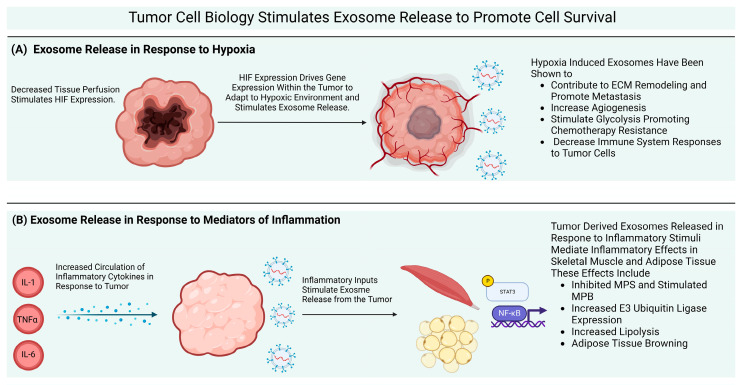Figure 1.
Exosome release in noncancerous cells is generally a pro-survival mechanism that is meant to relay signals of cellular stress throughout the body. Exosome release from tumor cells serves the same purpose, however tumor cells are exposed to a multitude of cellular stresses that stimulate exosome release. These exosomes interact with the tumor microenvironment and enter circulation where they exert systemic effects. (A) Tumor derived exosome release is stimulated by hypoxia to promote cell survival by altering the ECM components of the tumor microenvironment, stimulating angiogenesis, altering tumor and host cell metabolism, and altering local macrophage polarization. (B) Circulating inflammatory mediators also stimulate exosome release from tumor cells. These exosomes directly impact the MPS/MPB balance, increase E3 ubiquitin ligase expression, increase lipolysis and cause adipose tissue browning. Collectively, these effects illustrate a clear role of tumor derived exosomes in supporting cancer cell survival and contributing to the development of CC. Exosomes represent a novel potentially important therapeutic target for countering CC.

